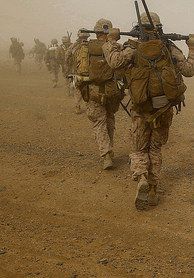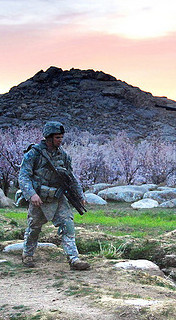Two Months Past the Elections, Turkey Still Does Not Have a New Government
/Anti-Government Protest, Ankara, Turkey: Photo by Kerem
ANKARA, Turkey - On June 7, 2015 Turkey went through general elections for a new government. The ruling party, Justice and Development Party (AKP), main opposition party Republican People’s Party (CHP), Nationalist Movement Party (MHP) and People’s Democratic Party (HDP) passed the10 percent electoral threshold, and got into the parliament, The Grand National Assembly of Turkey (TBMM).
Despite receiving the highest percentage of vote, unlike the previous elections, AKP was not able to reach the number of parliament members to form a government alone and forced to form a coalition with one of the opposing parties.
“‘No parties can form a government alone’ means political parties will come together and form a coalition. If no parties were authorized [by the people] to form a government alone, there is nothing more proper than having negotiations with other parties,” said Ahmet Davutoglu, chairman of AKP at the press conference following his final meeting with Kemal Kilicdaroglu, chairman of CHP on August 13, 2015.
Following the elections, prime minister and chairman of AKP, Ahmet Davutoglu was appointed to form the coalition on July 9, 2015 by the president Recep Tayyip Erdogan. Ahmet Davutoglu and his government would also continue to hold a temporary government until a new coalition is formed. Having 40 business days to form a government, Davutoglu and his team met leaders of all three parties at TBMM to start negotiations for a coalition government. Initially turned down by both MHP and HDP, AKP focused on negotiations with CHP. Both parties formed commissions to discuss main expectations from a new government that could be formed by both parties.
After the commissions met several times, a total hours of almost 35, to come to an agreement, the leaders of both parties Ahmet Davutoglu and Kemal Kilicdaroglu met on August 10, 2015 to finalize the negotiations. Not having come to terms, the two leaders scheduled to meet again on August 13, 2015.
The two leaders met in the afternoon of August 13, at Ankara Palas, a historical building used as an official state guest house in the capital to finalize the negotiations. Following long, tedious and cautiously crafted negotiations, most people were expecting an agreement and the announcement of the new government with the coalition of AKP and CHP, two distinct voices in the parliament.
Contrary to expectations, the final meeting did not end with an agreement. Both leaders expressed in separate press conferences that the parties were not able to some to terms to set a coalition government.
Mr. Davutoglu said despite both parties had very hopeful approach to form the government, and everyone did what they were supposed to do, each party’s expectations for the country’s future did not come to a consensus to work together.
“In my speech at AKP headquarters’ balcony on June 7th night, I had expressed that we will not let this country not have a government, we will not give a chance to those who want create a chaos or crisis, and we will take any necessary measures as a party that has the strength to govern the country any time. I am sure anyone who voted for us or not can see that we have been doing whatever is necessary for the responsibility we have taken on this issue for the past two months,” Mr. Davutoglu said.
“Within the frame of this work, I met the leaders of all the parties in the parliamentary. As a result of those meetings, in the initial phase, we decided to continue negotiations with CHP while MHP only expressed their willingness for latter meetings. I was very happy to find out we had more terms that we agreed than we had discuss. However, we also had great divergence on some issues especially foreign policy and education,” he continued. “We came to a conclusion that we should continue our dialogs within a mutual understanding, but we did not have the basis to form a coalition.”
Following Mr. Davutoglu, Mr. Kilictaroglu said CHP has prepared its basic principles to form a coalition with 14 items on June 15, 2015 and shared them with public following the elections. He said, he expressed Mr. Davutoglu that CHP thinks a well grounded and powerful coalition formed for a long term would be best for country’s need. On the contrary, Davutoglu offered a short term government or asked for support for a minority government as a second option.
“We have not received a suggestion for a coalition so far,” he said. “We were offered to form a government for a new election within three months. This did not match our central executive board’s decision of long term government. Personally, when we talk about national will, we need to understand what our people expected us.”
“If the national will has divided the votes among the political parties, and did not allow one party form a government alone, it is the leaders’ responsibility to form a coalition government as a response to national will of the country. If you say, I cannot form a coalition; I will go for a re-election, how can you talk about respecting the national will? We should have given a chance to this. I think, Turkey has missed a historical opportunity.”
Both leaders expressed there was no option for pessimism for Turkey. Davutoglu said there were still options such as forming a coalition with MHP, although an early election was prominently standing out. Kilicdaroglu said Turkey has the capacity to get over its problems.
Over two months after the elections, a government not being formed, Turkey’s people are again at the edge of making a choice of who should govern the country.
Contributing Journalist: @ElvanKatmer
LinkedIn: Elvan Katmer














 KAJAKI, Afghanistan – Afghan officials have reported that 17 Afghan civilians, including two women were beheaded by Taliban militants. They were killed on Sunday, 26 August 2012 at a late night celebration.
KAJAKI, Afghanistan – Afghan officials have reported that 17 Afghan civilians, including two women were beheaded by Taliban militants. They were killed on Sunday, 26 August 2012 at a late night celebration.



















